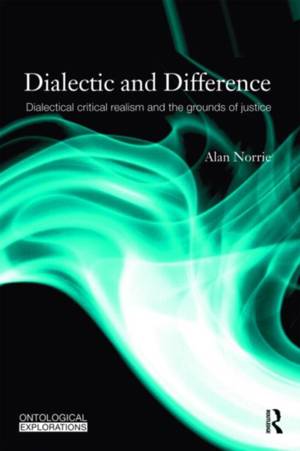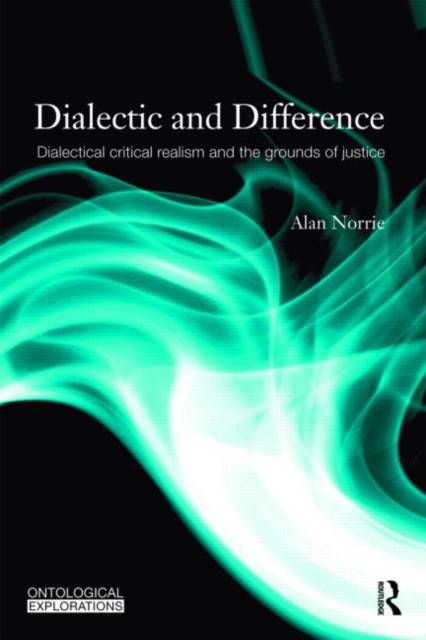
- Retrait gratuit dans votre magasin Club
- 7.000.000 titres dans notre catalogue
- Payer en toute sécurité
- Toujours un magasin près de chez vous
- Retrait gratuit dans votre magasin Club
- 7.000.0000 titres dans notre catalogue
- Payer en toute sécurité
- Toujours un magasin près de chez vous
Description
Dialectic and Difference is the first systematic exploration of Roy Bhaskar's dialectical philosophy and its implications for ethics and justice.
That philosophy has three aims: a dialecticisation of original critical realism, a 'critical realisation' of dialectic, and a metacritique of western philosophy. In the first, real absence or negativity links structured being to dialectical becoming in a dynamic world. The second draws on Marx to locate the critical impulse in Hegel's dialectic in a material, open and changing totality. The third identifies a central problem in western philosophy from the Greeks on, the failure to think real negativity as the essence of change ('ontological monovalence').
Bhaskar's ethics connect basic human ontology with universal principles of freedom and solidarity. He marries ('constellates') these with a grasp of how principles are historically shaped. His account of freedom moves from the infant's 'primal scream' to the eudaimonic society, but thinks the limits to freedom under modern conditions. The morally real in ethics and justice is displaced and reconfigured as relations between 'the ideal' and 'the actual'.
Western philosophy systematically denies the real negativity that drives Bhaskar's dialectic. Metacritique traces this to Parmenides and Plato's account of non-being as difference. It enables a critique of the poststructural radicalisation of difference via Nietzsche and the doctrine of 'Heraclitan flux'. Mobilised as 'the other' of Plato's Forms, this remains a move on Platonic terrain. It too denies real negativity in structured being as the ground of historical change and moral praxis.
This text is essential reading for all serious students of social theory, philosophy, and legal theory.
Spécifications
Parties prenantes
- Auteur(s) :
- Editeur:
Contenu
- Nombre de pages :
- 272
- Langue:
- Anglais
- Collection :
Caractéristiques
- EAN:
- 9780415560368
- Date de parution :
- 27-10-09
- Format:
- Livre broché
- Format numérique:
- Trade paperback (VS)
- Dimensions :
- 155 mm x 234 mm
- Poids :
- 453 g

Les avis
Nous publions uniquement les avis qui respectent les conditions requises. Consultez nos conditions pour les avis.






